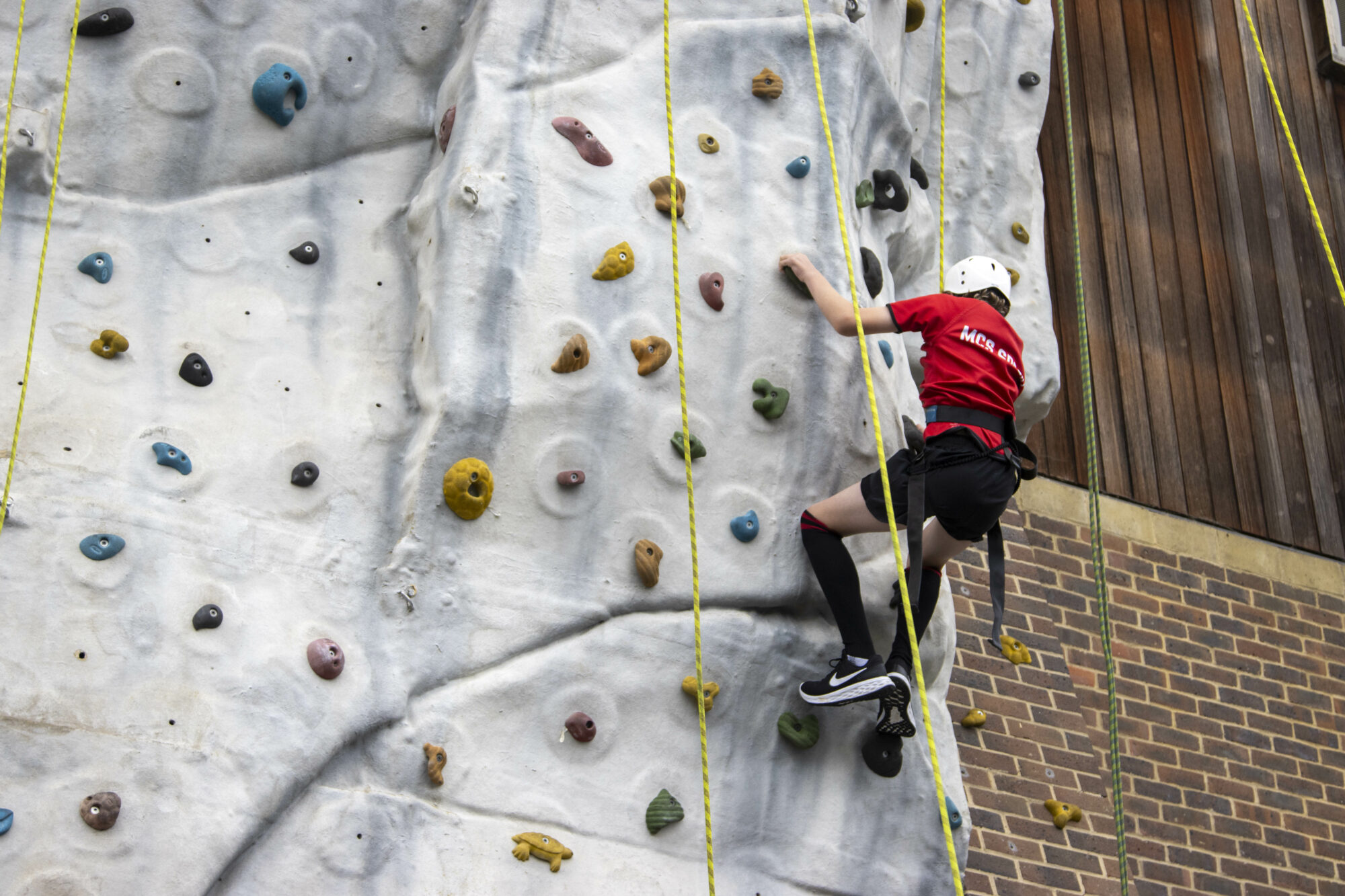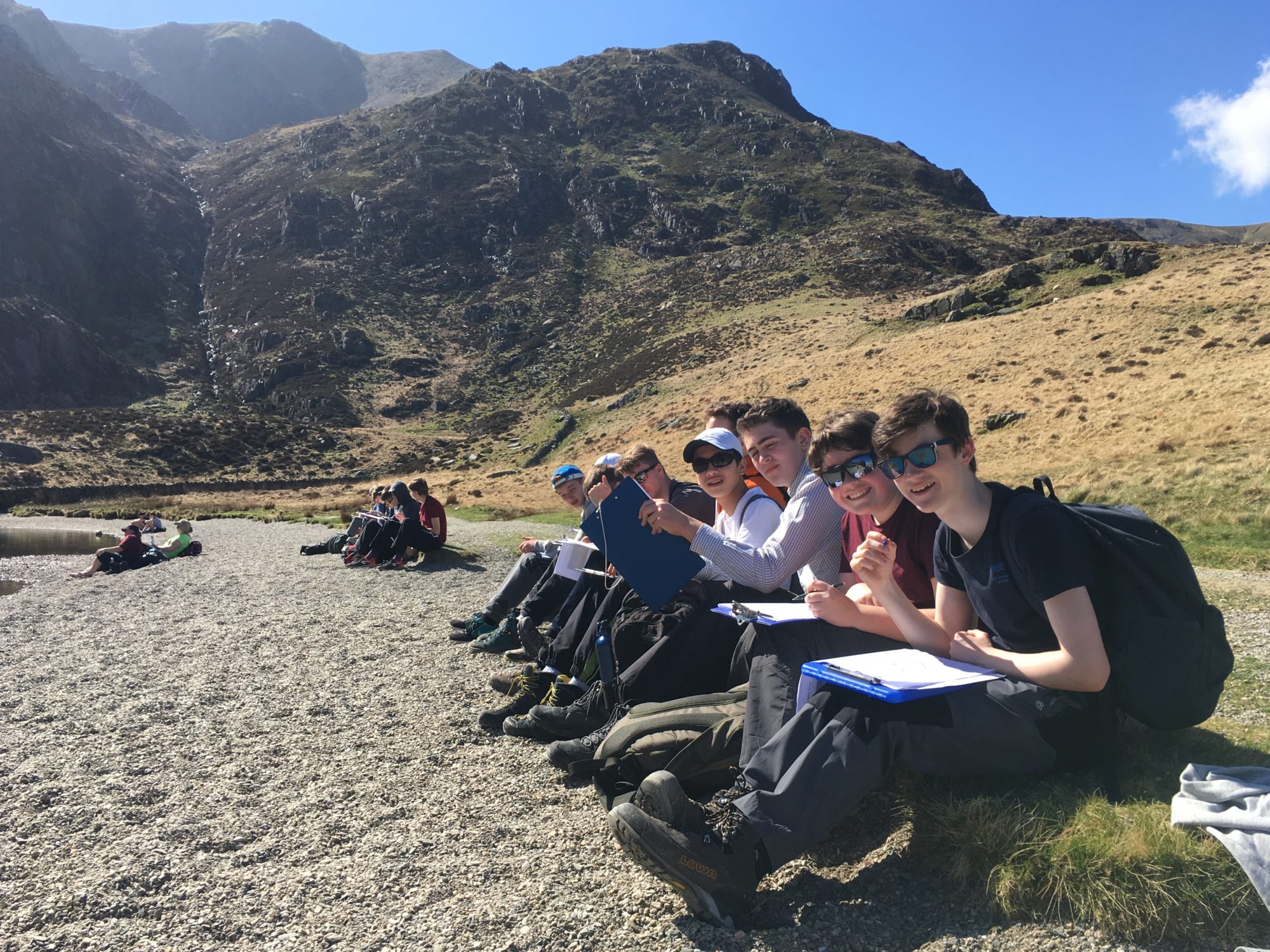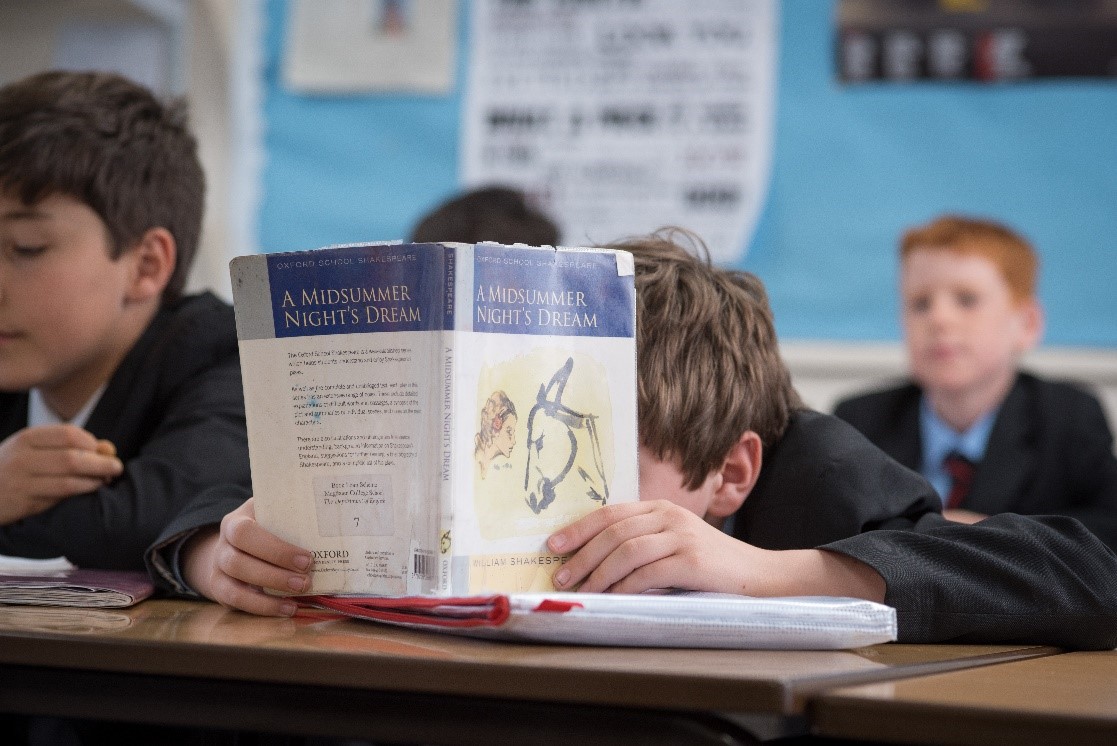Art
Art is for everyone. An understanding of the impulse to express and create, and the satisfying of this urge, is fundamental to the development of a person. Art is a major tool through which we learn to measure the world around us, by making judgments concerning issues and relationships, no matter how simple, abstract or esoteric they might be. The possibilities are endless, and the course can be bespoke to your interests. At a recent Art Society talk, painter Jenny Saville showed us images of her studio, where she surrounds herself with copies of works by her team of players – Rembrandt, Velázquez, Titian, Picasso. In this department, we help you to pick your own team and set your own questions.
The department takes a Fine Art stance, with particular emphasis on the importance of drawing, yet we maintain that anything is possible from that strong foundation, and pupils work in a very wide range of alternative media. Want to make a 500kg concrete sculpture? How about an immersive light and sound installation experience? Maybe you want to 3D print a city based on HP Lovecraft’s fiction? What about making a waistcoat that breathes in and out? Or perhaps a huge oil painting, based on intricate bubbles found in resin blocks? Do it.
The department benefits from light, airy studio spaces, a darkroom, an ICT suite (running the latest Adobe software), a Rochat printing press, spray booth, and screen printing resources, and a very well-equipped workshop (containing a suite of 3D printers, a laser cutter, and extensive tooling and hardware). The staff and pupils are supported by Art and DT technicians.
Design Technology is also taught as a discrete, timetabled subject (in addition to Art) in Years 5-8. Thereafter it is available as an extra-curricular activity. Artists also make considerable use of the specialist resources, equipment and technical support from the DT Workshop throughout their GCSE and A-level courses, whenever they so wish.
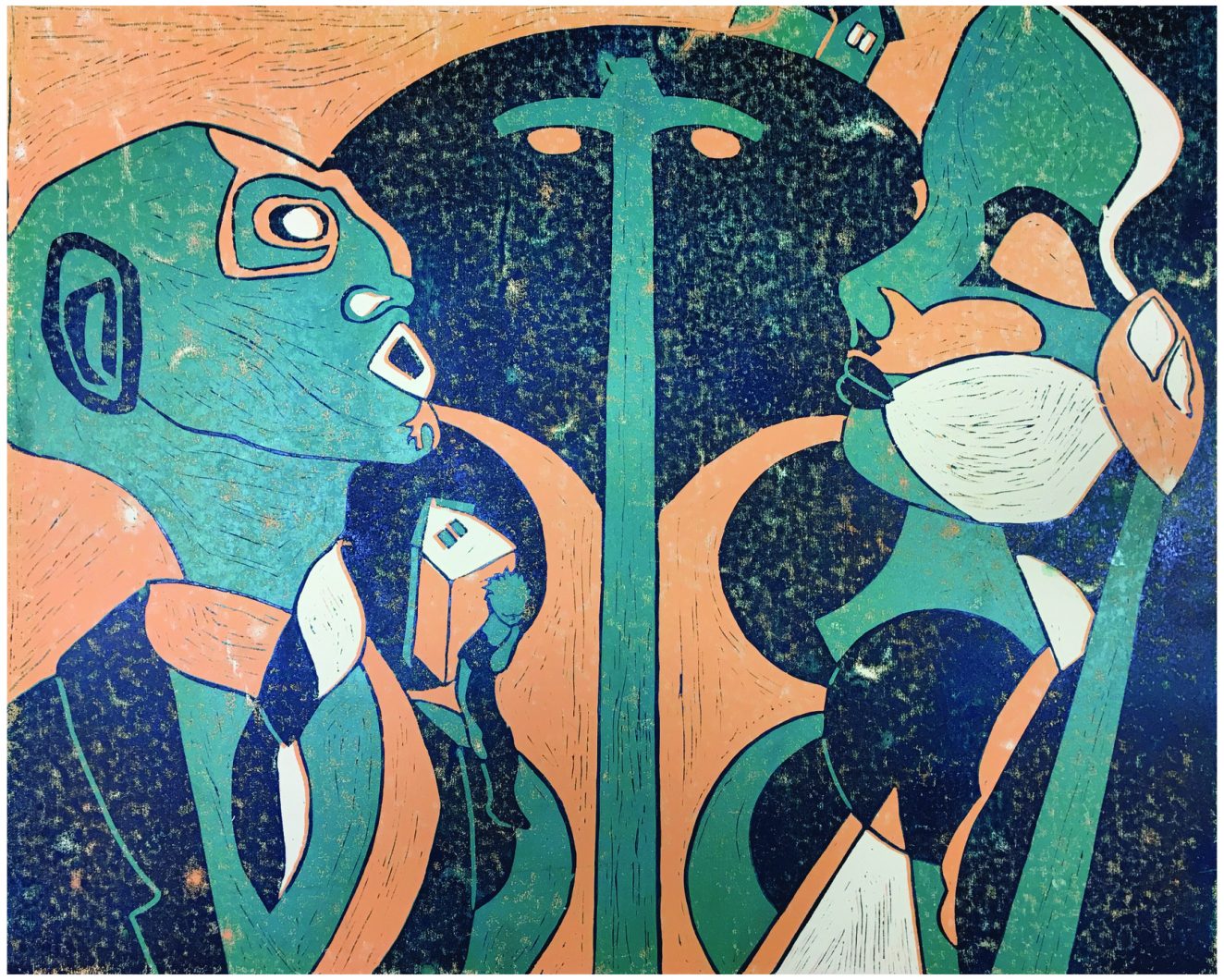
Lower School
The younger years are all about building confidence through fun and engaging projects underpinned by art historical references. Pupils explore a wide range of media, with plenty of opportunity throughout the year to develop their drawing skills and technical knowledge.
Middle School
In the Lower Fourth, boys benefit from small class sizes, affording the opportunity to take on much more ambitious project work. Again, the focus of the year is on breadth of experience, and ever-increasing independence. After a foundation course in essential skills and techniques pupils choose their own thematic concerns according to their personal interests – from early on, lesson work and homework is set by the pupils themselves.
Sixth Form
In the Sixth Form, pupils study Fine Art.
The Lower Sixth year offers the chance to reconsider working practice, as a series of Art History lectures and discussion classes supplement Life Class and taught workshops. These projects eventually develop into coursework projects which are refined in the Upper Sixth. Each student has an ‘allocated teacher’ very much like an Art School – a spirit of dialogue prevails as we help you to navigate through your own ideas and challenges.
Please refer to the Sixth Form Curriculum guide for a more detailed breakdown of the A-Level Fine Art programme.
In the Sixth Form, Fine Art includes practice to refine the pupil's preferred style and subject matters, Art History, Life Classes and workshops aimed at confounding their expectations.
Further Inspiration
If you are thinking about studying Fine Art in the Sixth Form at MCS, you might want to start reading around the subject before you join. Our Study Preparation guides are a useful tool, detailing further reading around key topics.
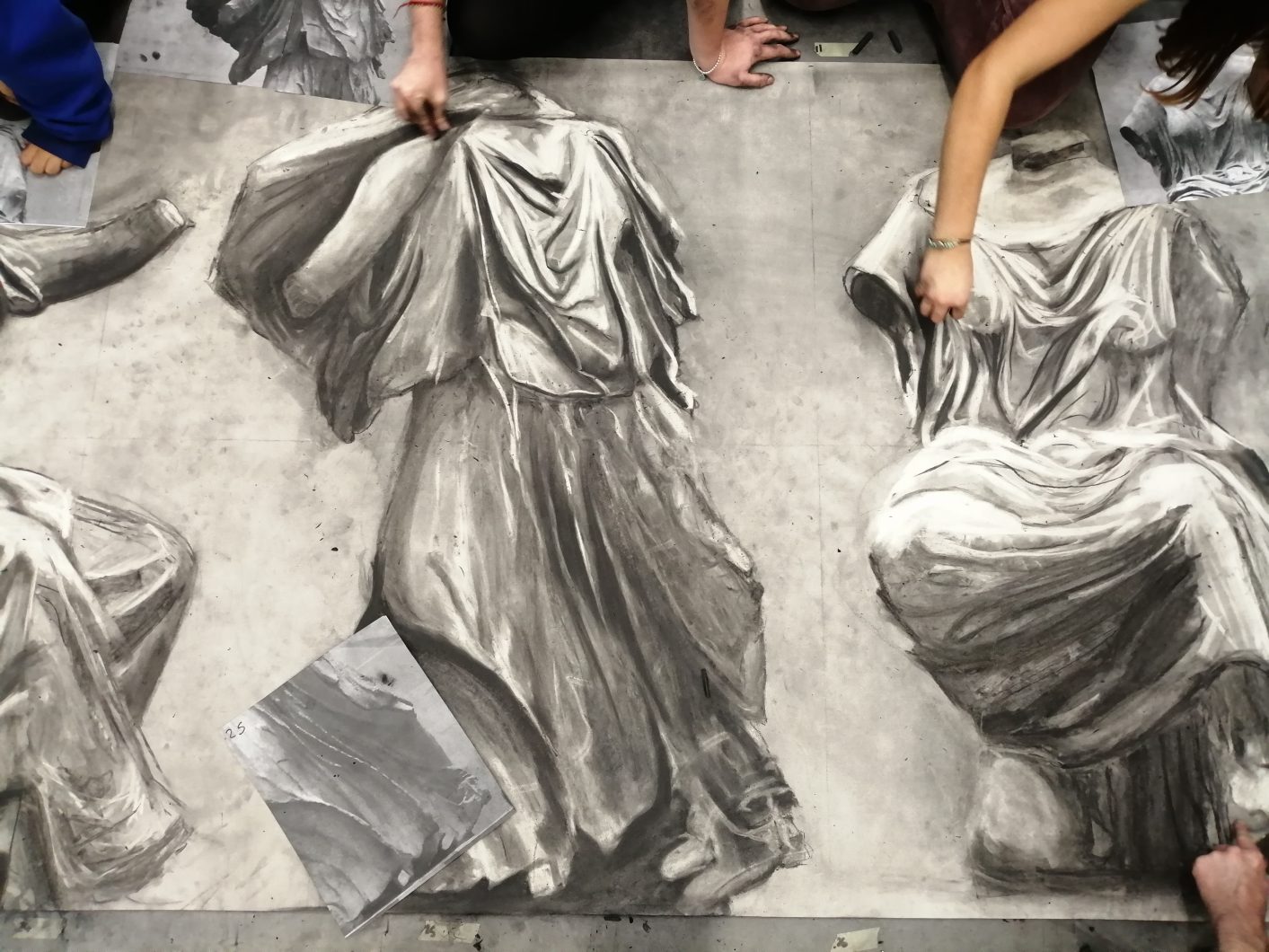
Extra-Curricular
There are a wide range of extra-curricular activities on offer across the department. The studios are always open 8am-6pm on weekdays, with occasional Saturday morning sessions on offer too. Anyone can make use of the facilities.
Weekly Life Class offers specialist training to Sixth Form artists, working from the model. There is a Lower School Art Club, a Darkroom/Photography Club, a Film Society, and a programme of events and opportunities for those holding Art Scholar/Exhibition status. Design Technology clubs offer younger pupils the chance to develop their project work, while the Engineering Club is aimed at more senior pupils, often in tandem with their university preparation. The Art Society hosts high-profile visiting speakers, such as painter Jenny Saville.
There is a regular programme of study trips, to locations such as Kew Gardens or Roche Court, as well as visiting the vast array of Oxford collections such as the Ashmolean, MAO or Pitt-Rivers. The department has regularly led residential trips to New York, for a week of cultural immersion.
Where Art can take you
A number of pupils each year go on each year to Art Foundation courses at UAL (including Fashion pathways at Central St Martin’s), Oxford Brookes, Kingston and others, often before degrees in either Fine Art (such as the Ruskin School, University of Oxford) or transferring to other subjects.
Architecture remains a very popular subject for university study from MCS, and pupils in recent years have secured places on the most competitive courses at institutions such as the Bartlett (UCL), Bath, Cambridge, Manchester, Newcastle and Nottingham.
We also have a growing number of applicants for specialist courses such as Product Design (at top schools such as Northumbria), and History of Art (Bristol, Nottingham).
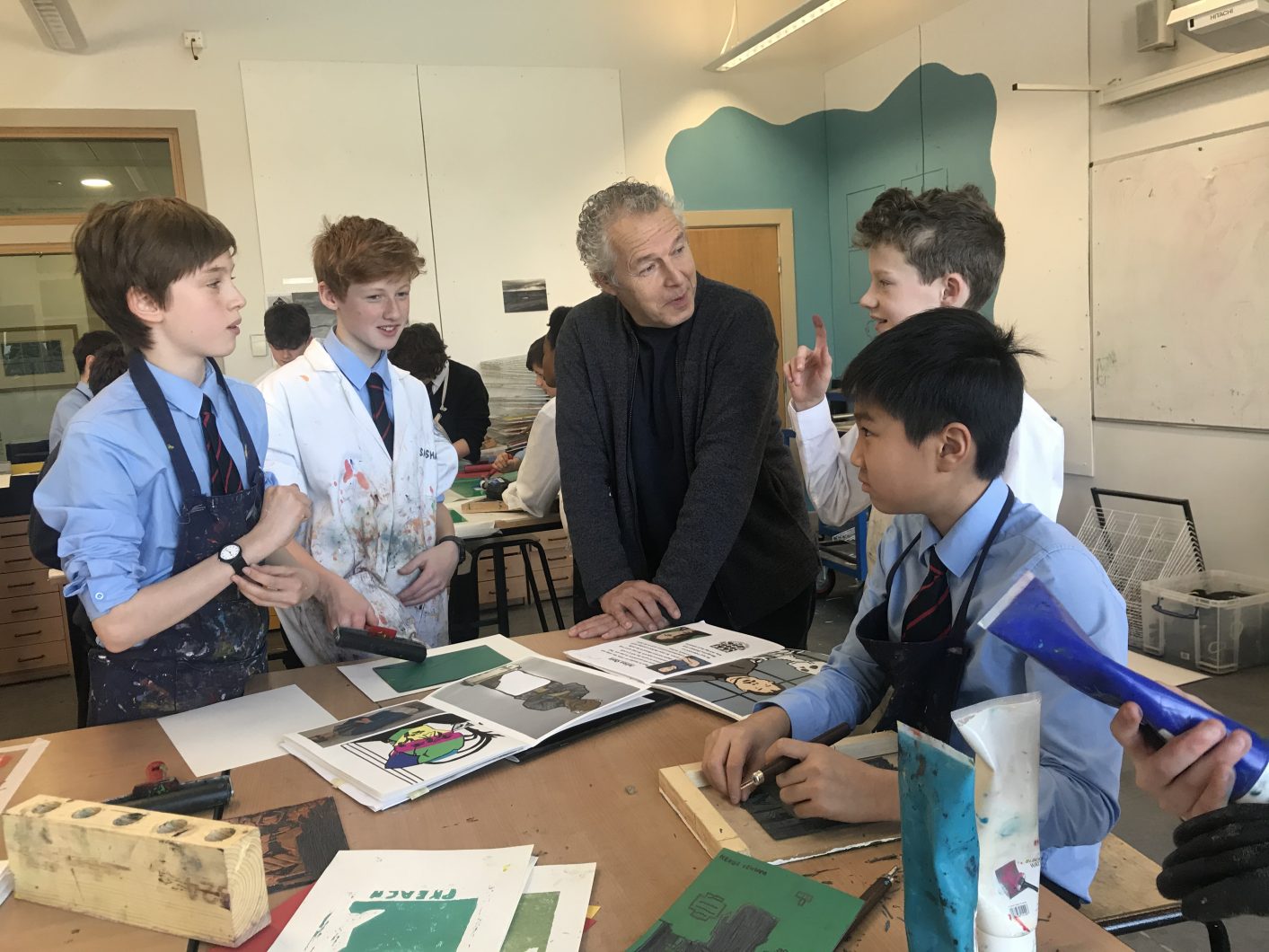
We recently welcomed artist and OW Julian Opie back to MCS to see his artwork Paul and Padmini Running in situ in the Richard Record Sixth Form Centre. You can read the full story here.
 MCS ranks among the top independent secondary schools, and in 2024 was awarded Independent School of the Year for our contribution to social mobility.
MCS ranks among the top independent secondary schools, and in 2024 was awarded Independent School of the Year for our contribution to social mobility.

 28 of our pupils achieved 10 or more 8 or 9 grades in 2024.
28 of our pupils achieved 10 or more 8 or 9 grades in 2024.
 In 2023-24, MCS received over £448,000 in donated funds.
In 2023-24, MCS received over £448,000 in donated funds.